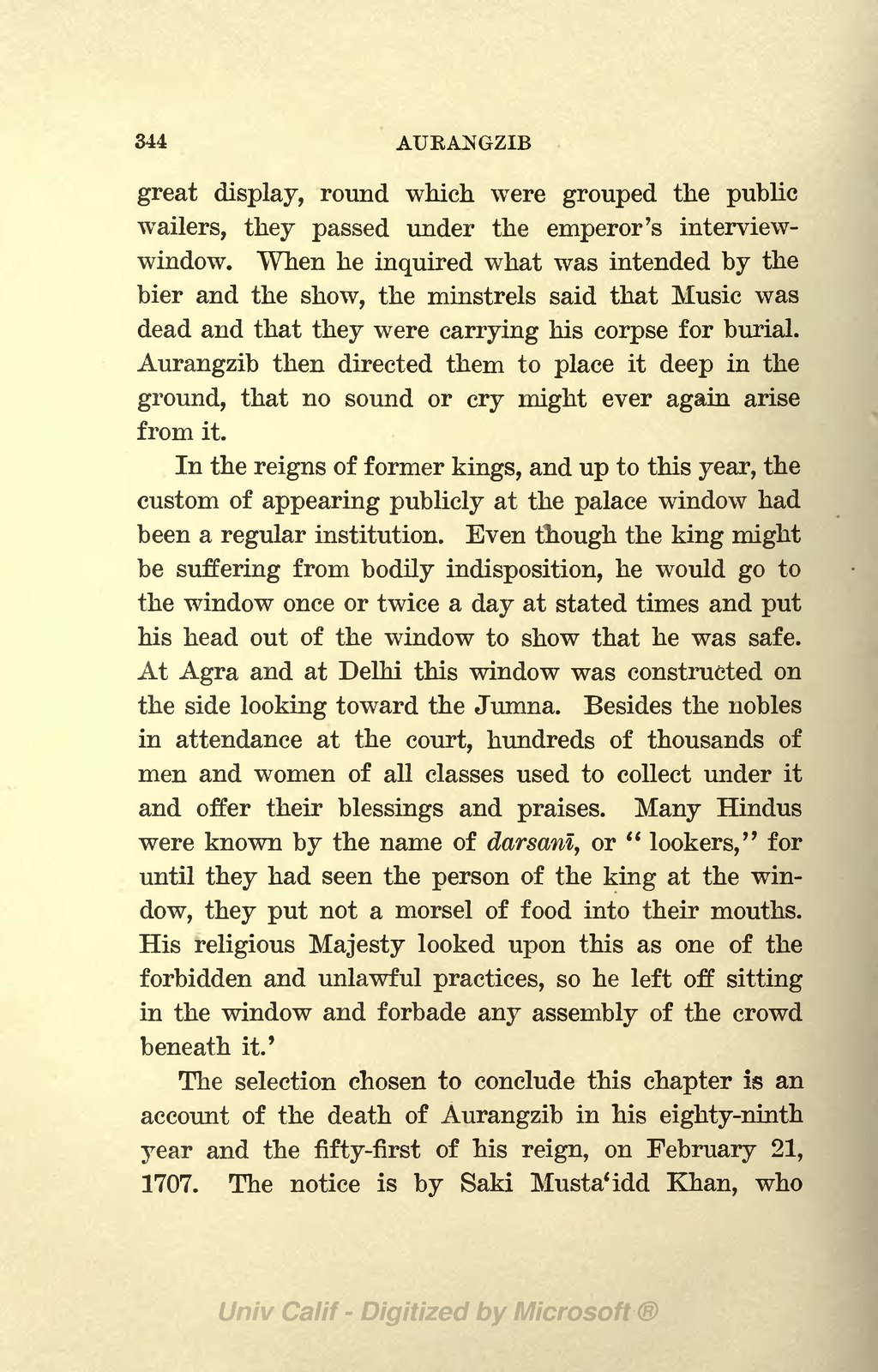344 AURANGZIB great display, round which were grouped the public wailers, they passed under the emperor's interview- window. When he inquired what was intended by the bier and the show, the minstrels said that Music was dead and that they were carrying his corpse for burial. Aurangzib then directed them to place it deep in the ground, that no sound or cry might ever again arise from it. In the reigns of former kings, and up to this year, the custom of appearing publicly at the palace window had been a regular institution. Even though the king might be suffering from bodily indisposition, he would go to the window once or twice a day at stated times and put his head out of the window to show that he was safe. At Agra and at Delhi this window was constructed on the side looking toward the Jumna. Besides the nobles in attendance at the court, hundreds of thousands of men and women of all classes used to collect under it and offer their blessings and praises. Many Hindus were known by the name of darsam, or " lookers," for until they had seen the person of the king at the win- dow, they put not a morsel of food into their mouths. His religious Majesty looked upon this as one of the forbidden and unlawful practices, so he left off sitting in the window and forbade any assembly of the crowd beneath it.' The selection chosen to conclude this chapter is an account of the death of Aurangzib in his eighty-ninth year and the fifty-first of his reign, on February 21, 1707. The notice is by Saki Musta'idd Khan, who
Page:History of India Vol 5.djvu/402
This page needs to be proofread.
